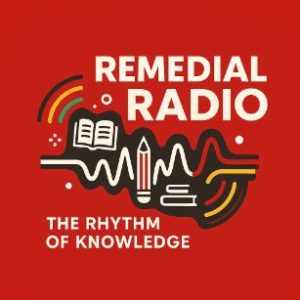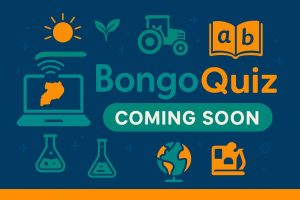Learn about the concept of Jamii in Kiswahili for Senior One students. Explore key community places, their importance, and common Kiswahili vocabulary with English explanations.
Introduction: What Is “Jamii”?
In Kiswahili, the word Jamii means community. A community is a group of people who live together in the same place and share resources, culture, traditions, and responsibilities. Communities play an important role in shaping how people live, work, learn, and grow. As a Senior One learner, understanding the concept of Jamii will help you connect Kiswahili with your everyday environment.
In this blog post, we will look at:
- Important places in the community (mahali muhimu katika jamii)
- The importance of these places (umuhimu wa mahali muhimu)
- Activities done in these places (shughuli katika mahali muhimu)
The content will be mostly in English to help you understand, with simple Kiswahili translations in examples and key terms.
1. Msamiati wa Mahali Muhimu katika Jamii (Vocabulary of Important Places in the Community)
Let’s begin by learning some useful Kiswahili vocabulary related to places in your community. These are places you see or interact with daily. Knowing their names in Kiswahili helps you describe your surroundings accurately.
| English | Kiswahili |
| School | Shule |
| Hospital | Hospitali |
| Market | Soko |
| Police Station | Kituo cha Polisi |
| Church | Kanisa |
| Mosque | Msikiti |
| Shop | Duka |
| Road | Barabara |
| Home | Nyumba |
| Town | Mji |
Example sentence:
- I go to school every day. → Huenda shuleni kila siku.
Try practicing these words by walking around your community and saying the Kiswahili word for each place you see.
2. Umuhimu wa Mahali Muhimu kwa Jamii (Importance of Key Community Places)
Every place in a community has a special role. Let’s explore what each location contributes to society.
a) Shule (School)
Schools are places where children and adults learn. They help people gain knowledge and skills for the future. In Kiswahili culture, education is highly respected.
Example sentence:
- Education is important. → Elimu ni muhimu.
b) Hospitali (Hospital)
Hospitals offer health services. They treat the sick, give advice on health, and help in emergencies. Healthy citizens mean a strong community.
c) Soko (Market)
Markets are where people buy and sell food, clothes, and other goods. They support trade and provide jobs. Markets also connect people from different areas.
d) Kituo cha Polisi (Police Station)
The police protect people and ensure safety. They help in solving crimes and preventing violence.
e) Kanisa na Msikiti (Church and Mosque)
Places of worship guide people in faith and moral values. They also bring the community together for celebrations, funerals, and charity.
f) Duka (Shop)
Shops are smaller than markets but very important. They provide daily items like sugar, soap, or airtime. Shops make life more convenient.
g) Barabara (Road)
Roads connect homes to schools, hospitals, and markets. They allow movement of goods and people. Without roads, communication and transport would be difficult.
3. Shughuli katika Mahali Muhimu (Activities in Important Community Places)
Understanding what happens in different places helps you relate Kiswahili to real life. Below are some common activities and their descriptions in both English and Kiswahili.
a) At the School – Shuleni
- Learning: Kujifunza
- Reading books: Kusoma vitabu
- Doing homework: Kufanya kazi ya nyumbani
- Playing games: Kucheza michezo
Example:
- Students learn Kiswahili at school. → Wanafunzi hujifunza Kiswahili shuleni.
b) At the Hospital – Hospitalini
- Treating patients: Kuwatibu wagonjwa
- Giving medicine: Kutoa dawa
- Checking blood pressure: Kupima shinikizo la damu
- Performing operations: Kufanya upasuaji
Example:
- Nurses give medicine to the sick. → Wauguzi huwapa wagonjwa dawa.
c) At the Market – Sokoni
- Selling vegetables: Kuuza mboga
- Bargaining prices: Kubishana bei
- Buying food: Kununua chakula
- Meeting friends: Kukutana na marafiki
Example:
- My mother buys food at the market. → Mama yangu hununua chakula sokoni.
d) At the Church/Mosque – Kanikani / Msikitini
- Praying: Kuomba
- Singing: Kuimba
- Giving offerings: Kutoa sadaka
- Listening to teachings: Kusikiliza mafundisho
Example:
- We pray every Sunday. → Huomba kila Jumapili.
e) At the Police Station – Kituo cha Polisi
- Reporting crimes: Kuripoti uhalifu
- Seeking help: Kutafuta msaada
- Solving disputes: Kutatua migogoro
Example:
- People report thefts to the police. → Watu huripoti wizi kwa polisi.
Tips for Learning Kiswahili Vocabulary Faster
- Use flashcards – Write English on one side and Kiswahili on the other.
- Label your environment – Put Kiswahili labels on common items at home or school.
- Practice speaking with friends – Use simple sentences daily.
- Watch Kiswahili programs – Listen to songs or news in Kiswahili to hear pronunciation.
- Keep a Kiswahili diary – Write what you do every day in simple Kiswahili.
Conclusion: Connect with Your Community Through Kiswahili
Learning about Jamii (community) through the Kiswahili language helps you understand your environment in a new way. From schools and hospitals to markets and places of worship, each place plays an important role in building strong and united communities.
By learning Kiswahili words and phrases related to community, you are not only passing exams—you are also becoming a responsible member of society. Practice the vocabulary and try describing your own community using the examples shared.
Remember:
Lugha ni daraja – Language is a bridge.
It connects people, ideas, and cultures.


Leave a Reply